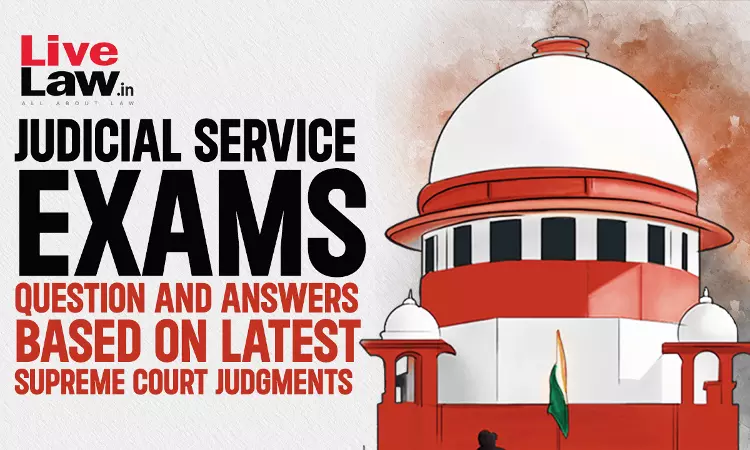Important MCQs Based On Latest Supreme Court Judgments For Law Examinations
Yash Mittal
11 April 2024 11:40 AM IST

Next Story
11 April 2024 11:40 AM IST
Q 1. Upon a suit of a plaintiff, a civil court passes a decree restraining the encashment of the cheque given to the respondent by the plaintiff only for security purposes, however, on the other hand, the criminal court proceeded against the decree-holder/plaintiff for the dishonor of cheque under the Negotiable Instruments Act, 1882. Decide the liability of the plaintiff/decree-holder.a....
